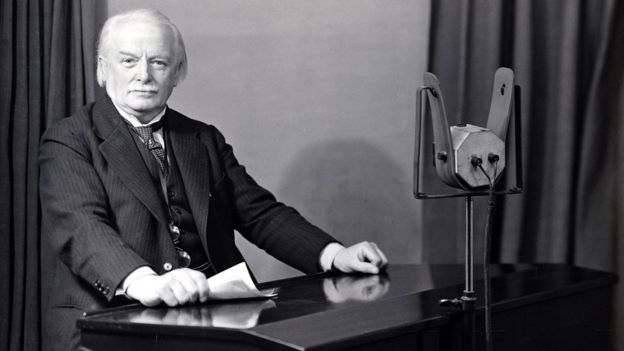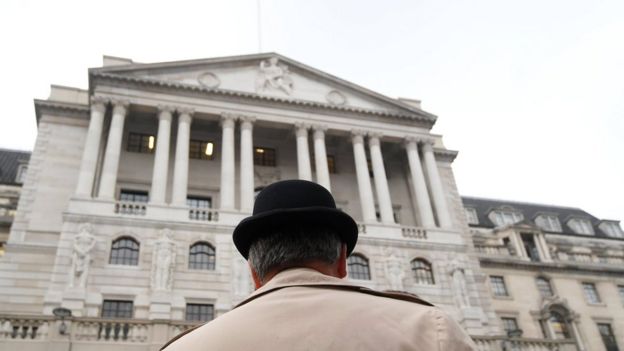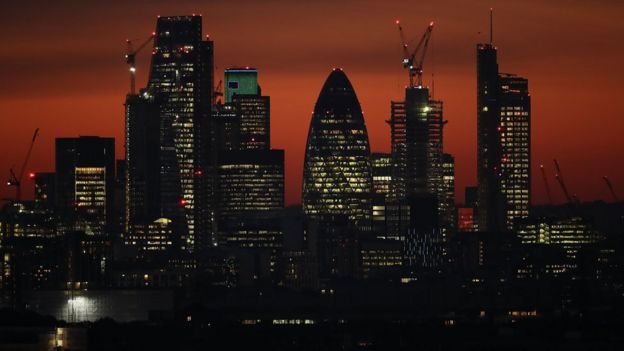
You believe what you see, but unfortunately what you see is written by those who see what they believe.
A recent article by columnist Sadanand Dhume is proof if ever it was needed, that Objectivity is a metallic object that must be left behind before the writer passes through the op-ed threshold. All good now. Next!
Biases don’t beep.
The present article is not a rebuttal but, rather, an attempt to understand, using Dhume’s column, our fascination – both as writers and readers – with selectivity. To be sure, Dhume has written what needs to be read. He has highlighted the gross fraud perpetrated by the present Bharatiya Janata Party government, on freedom of speech, on the right to life, on the rule of law, and, to an exaggerated extent, on what all of us think India should be or become.
So where has he erred? To put it simply, here: Dhume has hidden more than he has revealed. He has indulged in selectivity, an attribute none other than BR Ambedkar warned us of 75 years ago. Explaining why selectivity is damaging, he wrote:
"The social evils which characterize the Hindu Society, have been well known. The publication of 'Mother India' by Miss Mayo gave these evils the widest publicity. But while 'Mother India' served the purpose of exposing the evils and calling their authors at the bar of the world to answer for their sins, it created the unfortunate impression throughout the world that while the Hindus were grovelling in the mud of these social evils and were conservative, the Muslims in India were free from them, and as compared to the Hindus, were a progressive people. That, such an impression should prevail, is surprising to those who know the Muslim Society in India at close quarters."
Ambedkar detested the evil orthodoxy of the Hindu society, exposed the casteist and bigoted nature of many ancient Hindu texts, spoke authoritatively on Hinduism, brought to light its numerous ills, left its fold to become a Buddhist; and yet, here was the same man warning us of being selective against Hinduism and Hindu society. Such was his greatness and unshakable belief to 'Do the Right Thing'.
It is astonishing how prescient, and relevant, Ambedkar’s words are even today; not at all astonishing that we discard them with the chirpy tediousness of a CISF body-frisker. Subjectivity brings us eyeballs; Objectivity brings us calm and rational thinking. Precisely the reason why hunched-over emotional beings hunting for fist-sized stones to pelt prefer the former.
Dhume writes with the immediacy of a columnist who understands, like all good columnists do, that his writings would the day after be used to wrap kachoris by the neighbourhood halwai. He is what one would call a modern writer – aware, alert, and receptive to criticism; a social media animal who tries to learn from his trolls and critics, knowing well the worth of this engagement as a self-correcting measure. A Twitter handle laden with followers bends.
Occasionally, though, Dhume gives in to a closed set of arty dunderheads who stand in the middle of summer braving scalding loo to admire the coming of age of a frangipani in a TV studio carpark. These would be the seers who think the world sucks on their analysis and interpretation like an emaciated leech. They drench the newspaper centrespreads and seal the primetime debates at will. Their word makes no sense but it is final. Subjectivity and selectivity are their calling cards. Dhume's last column suggests he was in their company.
Dhume claims personal liberties are shrinking under the present government, coming to this generalised conclusion from his wholly justified condemnation of the religious zealots who go by the moniker, Gau Rakshaks. These criminals are seemingly running amok, doubtless comforted by an overseeing government that is, outwardly at least, non-violently fanatical about saving cows. The almost complete lack of law enforcement resulting from fear of political masters, coupled with the cushion the overseers provide through their obsession with saving the Gau, is precisely the deadly combination the extremists cherish and take comfort in. This author had written previously on their barbarity and criminality. Many other have, too.
The Gau Rakshak menace is not a recent phenomena but one that is increasingly in the news. That said, an objective reading is the need of the hour, especially when it comes to sweeping psychoanalysis.
While Dhume rightly criticises the BJP and the Rashtriya Swayamsevak Sangh for zealously promoting the idea of a cow-slaughter ban, he should have mentioned that in doing so, these organisations are only following the ardent views of none other than Mahatma Gandhi and Vinobha Bhave, who incidentally went on a fast unto death unless his call for a pan-India cow slaughter ban was acceded to. Dhume should also have mentioned that the ban on cow slaughter was first implemented, and rigorously imposed in most Indian states, by the Congress party, so much so that as recently as 2015 Harish Rawat, a sitting Congress Chief Minister of Uttarakhand thundered. “Anyone who kills cows, no matter which community he belongs to is India's biggest enemy and has no right to live in the country.”
That is correct. India's biggest enemy. Not Pakistan or China but a cow-slaughterer.
The fools of the BJP are following the fools of the Congress, only more stridently because this is what fools do. To miss this facet of our daily political drudgery is to give the impression that things are happening for the first time, that the phrase déjà vu is Martian gobbledygook and not something invented by earthlings.
Dhume then talks of a deeper malaise, suggesting that under the present government, personal liberties are shrinking. Again, while Dhume rightly criticises the BJP for contributing to this, what undoubtedly is a malaise, he is silent on the fact that most of our personal liberties have been shrunk already, and to the extent they don't fit our bloated bodies anymore.
Tellingly, much of the shrinking has been carried out by the Congress. One doesn't need to go as far back as Nehru, who jailed the famous poet Majrooh for composing a song lampooning him, and amended the Article 19 (1) to steal more of the freedom away from the speech; one only needs to look at Congress' recent history. From banning films to censoring them heavily, from banning books that offended dynasty sycophants, from bringingin the draconian 66A; from making it mandatory for people to stand up in cinema halls during the playing of the national anthem; from coming up with the aesthetically revolting idea of erecting world’s tallest flag-posts; from demanding an apology from the magazine that published the Danish cartoons – this from the Prime Minister of India, on the floor of the house; from staying silent when 8,000 activists were booked under the draconian sedition law by the Tamil Nadu police; from partaking in every possible chance our great democracy afforded to stifle free speech and expression; from ignoring every possible chance to repeal evil laws on sedition and free speech, the present government’s predecessors have been there, done that. The list of crimes and silences is endless. But Dhume doesn’t mention even a single intransigence. He fails to bemoan the fact that, far from providing liberties some breathing room, the Congress made things even more claustrophobic. Again, he is right in criticising the BJP, but he is wrong in giving his audience an impression that all this is happening for the first time, and that the BJP is responsible for it.
Dhume is not the first to have done this and he won’t be the last. In such a scenario, one may be entitled to ask: Are subjectivity and selectivity really all that harmful? Was Ambedkar wrong? What damage, after all, could selective outrage inflict on the reader and the running discourse?
Well, it can be devastating. Recall the early months of the Modi government and the media blitzkrieg over Church-attacks; the banner headlines screaming enough is enough, let Christians live in peace; the op-eds warning of creeping fascism and growing intolerance. What came of it? This, that three weeks of relentless boil and outrage later, the nation came to know that these attacks were nothing more than burglaries or accidents, that the perpetrators of the most heinous crime of sexual assault on a Bengal nun, one that quickly snowballedinto ‘Hindus are coming to get us, even the pious and the elderly won’t be spared’, were not Hindus; that as many churches were “attacked” under the UPA as they were under the present NDA.
We can outrage only on the news that we receive; and that which we don’t, it glides through the system unseen.
Under President Obama, during his first term in office, there occurred 1.1 million hate-crimes. 263,540 violent hate crimes were reported in 2012, just one year – 30 violent hate-crimes every hour. Of every day. 365 days. How many of these came to the reader’s notice? How many times was the Obama administration hauled over blazing coals for this? How many op-eds accused him of twiddling his thumbs while 30 minorities were attacked every hour of every day of every year?
Under Prime Minister Manmohan Singh, during his second term in office, there occurred 172,837 crimes against the Dalits. 2,073 rapes against Dalits were reported in 2013, just one year – a 31 per cent jump over the 2012 number. Five Dalit women were raped every single day in 2013.
The eye decides; the eye selects; the eye omits. Creeping fascism and growing intolerance become house lizards at will, scampering for cover under the shoe rack, leaving not even their writhing tails behind.
One may ask: why is it important to divulge previous occurrences – is that not Whataboutery? Why does a reader need to know that churches were also being “attacked” and robbed under the UPA, that 30 violent hate-crimes were happening every hour under Obama, that five Dalits were being sexually assaulted every day under Manmohan Singh? Why? Because outraging on any new occurrence with incomplete information is like fencing the adversary blind-folded; your every jab is in anger and desperation.
The solution to any problem is inextricably linked with its identification first as endemic or spontaneous. Rest is clickbait.
India is intolerant. Intolerant towards gays, towards Dalits, towards minorities (and majorities that become regional minorities), towards just and conscientious laws, towards free speech, towards freedom of expression. India has always been intolerant because we have laws, and Constitutional amendments, that protect Intolerance. The problem is endemic; it is not going to go away when the BJP goes away. But to realise this one has to forsake belief in one’s preferred ideology, preferred historians, preferred newspaper; preferred news channel; one has to forsake belief in selectivity. Easier said.
When it suits us, we become a nation of selective cacophony and silence.
The Left is silent when SFI goons go on a rampage; the Right is silent when ABVP goons indulge in the same. The Left is silent over one kind of bounty; the Right is silent over the other. The Left is silent when Muslims demand punishment for Kamlesh Tewari; The Right is silent when Hindus demand punishment for Prashant Bhushan. The Left is silent when a Muslim interprets Islam and his shop is burnt to the ground; the Right is silent when a film director interprets history and his set is burnt to the ground. The Left is silent when Yatra app is down-voted; the Right is silent when Snapdeal app is down-voted. The Left is silent when the communists rewrite our textbooks; the Right is silent when the nationalists rewrite our textbooks. The Left is silent when communists murder RSS workers; the Right is silent when RSS workers murder communists.
When it comes to selectivity, the Left and the Right are two sides of the same coin – emotional, impulsive, hypocritical, entrenched.
For the uninitiated, it takes some time to realise that this here is a game being played. The Great Indian Intolerance Chess Clock. Every single time there is intolerance that shames the Right, there follows intolerance that shames the Left. And vice versa. The Left outrages on one kind of intolerance, and the Right does the same for the opposite kind. The Left spots an atrocity that would shame the Right and slaps the intolerance chess clock; the Right spots an atrocity that would shame the Left and does the exact same after a while.
If I can shame you more than you can shame me, I believe that I can reduce my shame, disregard it even.
This constant jabbing at the other, while blind-folded, is what keeps the fire burning. Indian media discourse is this chalice runneth over with hundreds of stories that suit any one particular narrative. Take a sip, pass the cup along.
That selectivity can be immensely damaging to a nation's psyche is not quite apparent at first glance. This is because highlighting an atrocity devoid of its previous histories is in itself an important undertaking. To draw the reader's attention over any atrocity is essential in a democracy, to outrage over it equally so. No rational person can deny that even in isolation – i.e. devoid of previous history or knowledge an atrocity must be condemned and acted upon.
Why, then, did Ambedkar worry about selectivity? Why was he not satisfied with the selective outing of Hindu evils? It is because he was looking for solutions, and reforms – not just for one problem, not just for one community, but for the nation as a whole. He worried that conscientious Hindus shamed by their religion's evils would try and reform, but that conscientious Muslims not shamed by their religion's evils wouldn't. Reform is possible only when mistakes are identified, spoken of, written about, and the conscientious shamed. Shaming is good, shaming is essential, shaming is catharsis, but what good is shaming if it deepens further the chasms in our society, reforms only one community, is selective.
The writer Aatish Taseer has written an impassioned essay on the lynching of the Muslim Pehlu Khan at the hands of the Gau Rakshaks. It is an important read; it shames us as it should any conscientious Indian. Taseer talks of the murder of a Muslim at the hands of Hindu extremists; the outrage is real and affecting. At the end, Taseer holds India complicit in the murder: "...a whole nation, through its silence, is complicit," he writes.
If one has to hold the whole nation, including Taseer himself, complicit in the murder of a Muslim, why, then, would have asked Ambedkar, should that man not also be Farook, the Muslim lynched by Muslim extremists?
Farook, who, you ask. Farook, who, asks India. Farook, who, asks even Taseer.
Farook, a Muslim-turned-atheist, was lynched by Muslim extremists around the same time as Pehlu was by Hindu extremists. Pehlu is remembered, as he must be; but Farook is forgotten. Why? Why has Farook been forgotten? Is it because he was lynched by Muslims and not Hindus?
Who decides who is to be remembered and who forgotten? Who learns, who is shamed, who believes, who sees?
We do. Our selectivity does.
Holding India complicit for the murder of Pehlu will shame us into making sure such atrocities never happen again. But not holding India complicit for the murder of Farook, not shaming us for this atrocity, means that many more Farooks would meet the same fate. This, in summation, was what Ambedkar had warned us of.
But where is Objectivity; where do I find it?
Listen, Red. Far away there is an oak tree beneath whose tired, protruding roots is a biscuit tin containing a note that says, Don't just worship Ambedkar, follow him. Slither out that sewer pipe using your elbows and stand up on your legs and look up to face the heavens and let that rain wash away all the shit and the filth and give you the strength to find that tin. Find that tin, Red. It is your only hope.


 Image copyrightREUTERSImage captionThe Bank of England did not get its way against the Treasury
Image copyrightREUTERSImage captionThe Bank of England did not get its way against the Treasury